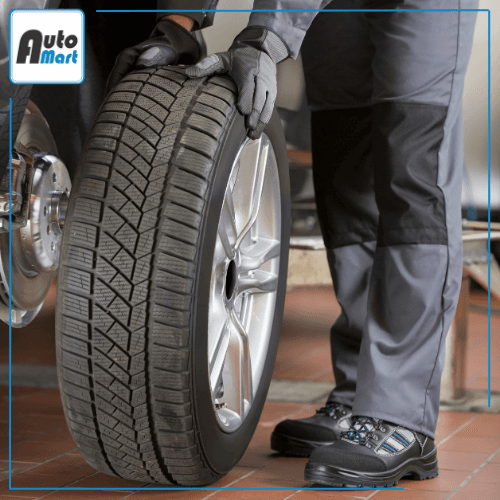If you’re thinking about buying a car, whether it’s your first time or you’ve gone through the process before, it’s important that you familiarise yourself with the terminology associated with it. Not only will it make you feel more secure and in control when the time comes to sign the paperwork, but you’ll also be more informed about the choice you’re making and what it all means going forward.
If you decide to opt for financial assistance, there are a variety of financial service providers and institutions that can assist you with car finance loans. Some of these include the bank or a car dealership. Use the Auto Mart car finance calculator to get an estimate of what your potential payment will look like if you already have a vehicle in mind.
If you're looking for more information about car finance, then this article is for you. So, let’s talk about the various aspects of car finance and help you gain a deeper understanding of the process.

Photo by Negative Space
What is car finance?
If you're unable to afford a new car outright, car finance can be a great alternative. Its purpose is to assist buyers who do not have the total amount needed to buy the vehicle they are interested in. Thus, a financial services provider loans the required amount to the buyer, who then pays back the loan over a certain period of time. This type of deal typically involves paying a set monthly amount back to the lender. In layman's terms, car finance is essentially a loan that allows you to buy a car, which you can then pay back over a set amount of time.
Different types of car finance
There are various types of financing options that you can choose from, such as personal contracts purchase, hire purchase, and personal loans. Each of these has its pros and cons, and ultimately it’s up to the buyer to decide which one works best.
Hire purchase car finance
A hire purchase agreement is a type of vehicle financing that allows you to buy a car until the end of your contract, which means that you have paid off the monthly payments. The loan is secured against the vehicle, and you are not the owner until you finish the contract and pay the finance company the final amount.
A hire purchase agreement is still a popular option with car buyers. With a hire purchase agreement, you can make a deposit upfront, which will help reduce the amount of money you have to spend monthly. Once the vehicle has been paid off, you are the legal owner.
Pros of hire purchase
It’s cheaper to pay for a longer-term loan than a personal loan, and it allows you to keep the car even if you have a poor credit history. Also, since you can choose a more flexible payment plan, you can avoid paying more interest over the life of the contract.
Cons of hire purchase
The hire purchase agreement is typically for a fixed term, and the finance company will still be the one to pay the final payment and transfer fee. This type of deal is more expensive than other car finance options. You can’t sell the car without the company’s permission, and if you fail to make the payments, the finance company can repossess the vehicle.

Image by Gustavo Fring
Instalment finance
This is the most common type of car payment method. You can pay off a vehicle in monthly instalments, with or without a deposit. The monthly repayments are calculated by taking into account the vehicle's purchase price and the deposit that's required at the start of the deal.
The longer the term, the higher the interest that will be charged. Ideally, you should put down a large deposit to ensure that you can finance the loan in the shortest possible time. This method will allow you to own the vehicle after the last payment has been made.
Pros of instalment finance
This type of car financing allows you to own the car of your dreams once you make the final payment. It also provides you with no limitations on how you can use the vehicle.
Cons of instalment finance
The depreciation of a car's value can happen immediately after you leave the dealership. It's not an asset, and it's up to you to either sell or get rid of it. Since it's yours, it's also your responsibility to maintain and insure it.
Personal loan car finance
A personal loan is similar to an unsecured loan in that it allows you to borrow money from a bank and then use it to purchase a vehicle. After you pay the car dealer, you will be the owner of the car.
This type of deal is different from the previous two types of car finance. It does not require the car finance company to give you permission to sell the vehicle. This means that if you ever need to sell the car, you can do so without any problems.
Before you can get a personal loan, you must have a good credit score. This is typically required by financial institutions to ensure that you can get a loan. If you don’t have a good score, you might not be able to get a loan.
Pros of personal loans
Personal loans are a type of loan that can be used to purchase a car from a private seller. There are a variety of loan providers that can assist you, such as banks and the vehicle dealerships themselves. You can also choose to pay for the car partially in cash and cover the rest with a loan. With a personal loan, you own the car for as long as you like.
Cons of personal loans
Personal loans have higher monthly payments than other types of car financing. Because you own the vehicle outright, you'll be responsible for all its repairs and maintenance, and its value will depreciate. This means that if you sell it, it will be worth less than you paid for it.

Image by Antoni Shkraba
What is needed when applying for financing?
You'll be asked to provide various documents such as your identity, income, and residence to prove your eligibility for a loan.
Proof of income
You’re employed? Then this is fairly simple. You’ll need to provide bank statements and pay slips for the past three months.
If you’re self-employed, then you’ll also need to provide a financial statement for your business. This can be done by an accountant or auditor.
Are you a pensioner? You can also provide a statement for your retirement or investment accounts.
Identity proof
In most cases, a South African ID is all that's required. However, if you don't have one, a valid passport or driver's licence may be acceptable. This depends on the type of document and the declaration that's included in it.
Proof of address
You'll need to provide proof of address, which may come in the form of bank statements, water bill statements or electricity, retail accounts, and telephone or cellphone accounts. The most important part is that it must include your name or initials, surname and address.
If you want to use finance to purchase a car, it’s important that you have a clear understanding of the type of deal that you want. There are a variety of options available, such as leasing, personal loan, and hire purchases.
After you have decided on the type of deal that you want, you need to choose a financial institute or in-house financing option that can offer the best deal for your needs. Want to get a general idea of what you’ll be paying for a new ride? Use Auto Mart’s finance calculator to check what your monthly car payment might be.





